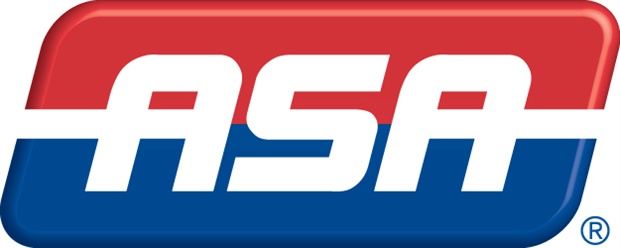Tune Up
Tune Up Services in Norfolk / Virginia Beach
Tuneup – is an old-fashioned maintenance term that’s taken on a slightly new meaning today. With electronic ignition and fuel injection came computers that took over control of engine settings. Early versions allowed for some tinkering, but today’s engines require advanced equipment and training. Accurate Tune Plus has been providing car tune ups in Norfolk, VA and Virginia Beach for over ten years.
You can and should, however, replace normal maintenance parts to see improved engine performance and life of your automobile. Here are common maintenance parts you can replace to significantly increase performance and reduce major problems:
Basic Ignition Parts:
Spark Plugs: Spark plugs are good indicators of engine condition. Removing and inspecting spark plugs tell you a lot about how well the engine is running and what may be causing problems.
All spark plugs should be removed and checked every 30,000 miles – even if your car is “low maintenance” – you’re told to change spark plugs at 100,000 miles. This prevents the plugs from seizing in the block, causing expensive repairs down the road.
Distributor Cap & Rotor: Both the distributor cap and the rotor are usually plastic and, thus, deteriorate with age and use. Cracks may develop, allowing moisture in. The metal contacts on both can then corrode, causing misfiring. These parts should be replaced at recommended intervals or if showing any excessive wear.
Spark Plug Wire Sets: Spark plug wires have become less of a problem than before. New materials and sizing have reduced failures. Electronic ignitions have increased operating ranges.
Filters:
According to experts, changing filters on a regular basis may have more to do with your car’s longevity than any other single factor.
Oil Filter: Oil filters are easy to replace and help prevent unnecessary engine wear. The job of the oil filter is to remove soot, rust particles and other solid contaminants from the oil. Oil filters should be replaced with engine oil every 3,000 miles.
Air Filter: Air filters remove dirt by trapping particles as air passes through the filter media. They also protect the carburetor in older cars, preventing dirt from clogging the air bleeds and metering jets. They protect fuel injectors in later-model autos.
Air filters should be replaced every 20,000 miles but more often if you live or drive in dusty areas. Any filter that looks heavily loaded should be replaced regardless of the number of miles, as should any filter which shows any type of damage.
PCV Breather Filter: The PCV breather filter assures only clean, filtered air is drawn in through the PCV breather. A clogged breather filter prevents the PCV from siphoning away the blowby gases and moisture created by engine combustion, resulting in oil breakdown and sludge buildup. The PCV breather filter should be replaced every 30,000 miles; however, yearly replacements are a good preventive measure.
Fuel Filter: Contaminants can get into your fuel system and if not trapped by the fuel filter, they can clog the injector inlet screens. If dirt reaches the injector itself, it can clog or damage the pintle valve and seat. In older cars, dirt can plug the carburetor’s fuel metering orifices.
If the fuel filter is not replaced regularly, fuel flow to the engine will become restricted, resulting in stalling, loss of high speed power and hard starting. The fuel filter should be replaced every 30,000 miles; however, professionals recommend a yearly fuel filter change and a change whenever other fuel system parts are replaced.
Automatic Transmission Filter: Properly filtered transmission fluid transmits energy, plus it cools and lubricates the moving parts of the transmission.
A clogged transmission filter can produce transmission slippage, engagement problems and hesitation. Experts recommend this filter be changed every 12,000-15,000 miles to extend the life of your automatic transmission.
Other Maintenance Parts:
Many maintenance parts are mistakenly seen as non-critical. Though not true “tuneup” parts, the functions of these parts can definitely impact the benefit of any tuneup. Plus, as emission laws have gotten more stringent, these parts have become essential – if you want your car to pass emissions the first time around.
Oxygen Sensor (O2 Sensor): Your oxygen sensor(s) should be replaced at the recommended intervals. A worn oxygen sensor drastically changes engine settings.
Vacuum Hoses: Many major systems depend on manifold vacuum for signals and function. All vacuum hoses should be checked and replaced as needed. Even a slight leak can cause major problems with performance; in some cases, the car won’t even run if there’s a vacuum leak.
Temperature Sensors: Temperature sensors for various engine functions can also be a good weekend project. These sensors control the fuel injection system, cooling system and even the exhaust system. And they can definitely be a cause of poor performance problems.
A Few Important Things to Remember:
Heed these tips and you’re well on your way to extending the life of your car and improving its overall performance – especially gas mileage and emissions:
Tip #1: General overall cleanliness of your engine is the best preventive maintenance you can perform on your car. A clean engine runs cooler and is much less likely to cause premature failure of other parts. It’s also easier to work on.
Tip #2: Regular routine replacement of all filters, lubricants, coolant and the other parts noted here is critical. Use the mileage guidelines shown as your benchmark. Sensing and mechanical tolerances have become so tight even slight variations can create drastic performance changes.
Tip #3: Know your car’s systems and particular requirements before starting any project. Do not attempt to fix what you don’t understand.
Tip #4: Remember that some improvements may not take effect right away if your car’s computer is designed to learn and adjust. The computer may need to see various parameters before making any permanent setting changes.




 Hours of Operation:
Hours of Operation:


